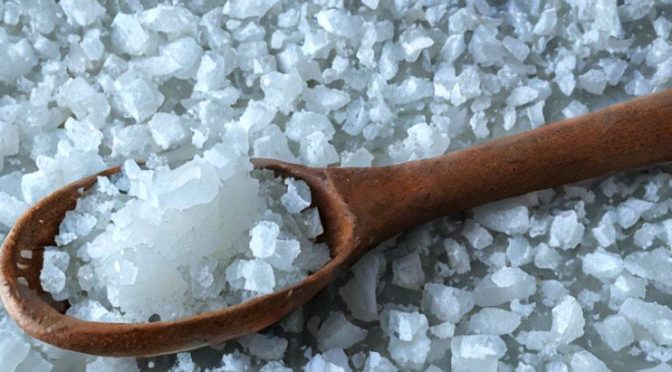This article is based on a video titled “Why You Need More Salt in Your Diet” by Dr. Eric Berg DC and Dr. James DiNicolantonio. The video provides a comprehensive understanding of the role of salt in our diet and its impact on our overall health. It also highlights the misconceptions surrounding salt intake and the potential health benefits of consuming the right amount of salt.
Contents
- Misconceptions about Salt Intake
- Recommended Salt Intake
- Salt and Exercise
- Salt and Potassium
- Salt and Immunity
- Quality of Salt
- Salt and Ketogenic Diet
- Salt, Magnesium, and Vitamin D
- Avoid Omega-6 Seed Oils
- The video
- Conclusion
Misconceptions about Salt Intake
Contrary to popular belief, our ancestors did not consume a low-salt diet. The calculations suggesting this were based on the consumption of land muscle meat alone, ignoring the fact that our ancestors also consumed aquatic vegetation, aquatic animals, and the salty blood and interstitial fluid of animals.
Recommended Salt Intake
The American Heart Association recommends less than half a teaspoon of salt per day, while the US dietary guidelines recommend less than a teaspoon. However, studies show that the lowest risk of death or heart attacks is associated with consuming about one and a half teaspoons of salt per day.
Salt and Exercise
During exercise, we lose about half a teaspoon of salt per hour through sweat. This loss is not considered in the recommended daily intake. Moreover, consuming caffeinated beverages can also lead to a loss of sodium and chloride, further depleting the body’s salt levels.
Salt and Potassium
The body’s ability to handle and tolerate higher levels of salt is significantly improved when we consume a good amount of potassium. People who are salt-sensitive are often either insulin-resistant or have low levels of potassium, magnesium, and bicarbonate.
Salt and Immunity
Salt is crucial for our immune health. It plays a significant role in moving almost every single substance in the body, including glucose, amino acids, and almost every neurotransmitter. A deficiency in salt can lead to nutrient deficiencies, as it affects the body’s ability to digest and absorb nutrients.
Quality of Salt
The quality of salt we consume is also important. Pink salts, such as Himalayan pink salt and Redmond real salt, are recommended as they contain natural iodine.
Salt and Ketogenic Diet
When following a ketogenic diet, it is recommended to consume one and a half teaspoons of salt per day. This is because a low-salt diet can increase the levels of sodium-retaining stress hormones, indicating that the body is in a stressed state.
Salt, Magnesium, and Vitamin D
Salt plays a crucial role in the absorption and utilization of other nutrients, including Magnesium and Vitamin D, which are vital for maintaining a healthy immune system. Magnesium, which is required to activate Vitamin D in the body, can be better absorbed when the right amount of salt is present in our diet. Interestingly, about 50% of the US population is deficient in magnesium, which may indirectly point towards inadequate salt consumption.
Avoid Omega-6 Seed Oils
Omega-6 seed oils are one of the worst foods for the immune system. They are highly oxidized and can damage the gut, leading to poor nutrient absorption. They also saturate immune cells with omega-6, leading to the production of more pro-inflammatory cytokines.
The video
Conclusion
Understanding the role of salt in our diet is crucial for maintaining our health. It’s not just about the quantity, but also the quality of salt we consume. Incorporating the right amount of salt, along with a balanced intake of other nutrients like potassium, magnesium, and Vitamin D, can significantly enhance our immune health. Avoiding harmful substances like Omega-6 seed oils also contributes to better nutrient absorption and overall well-being.

